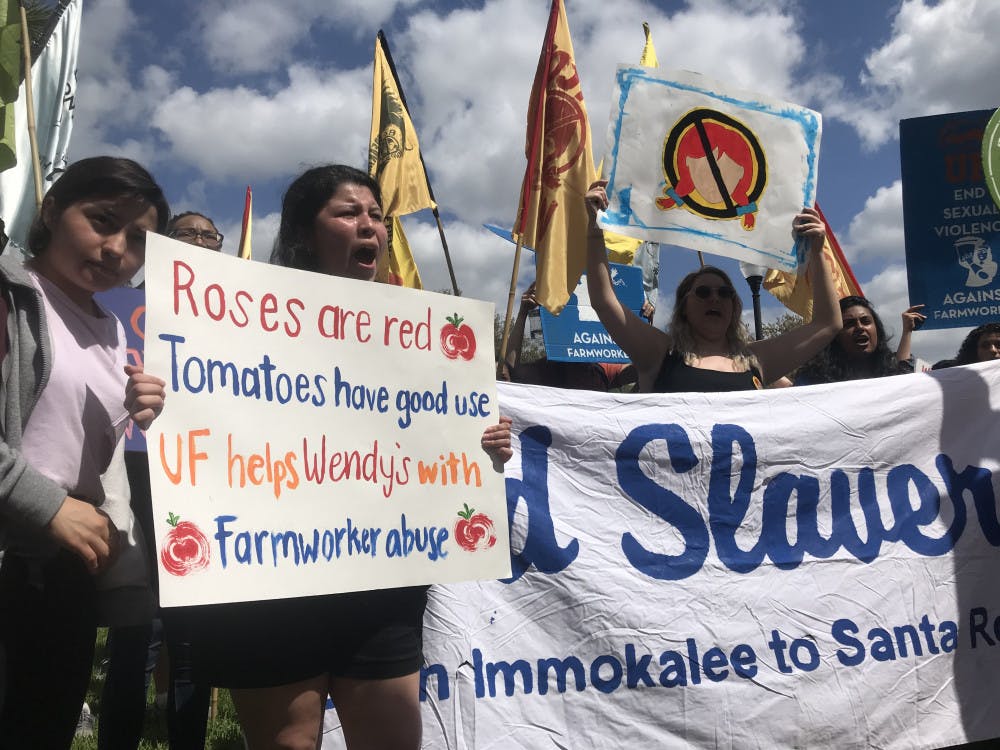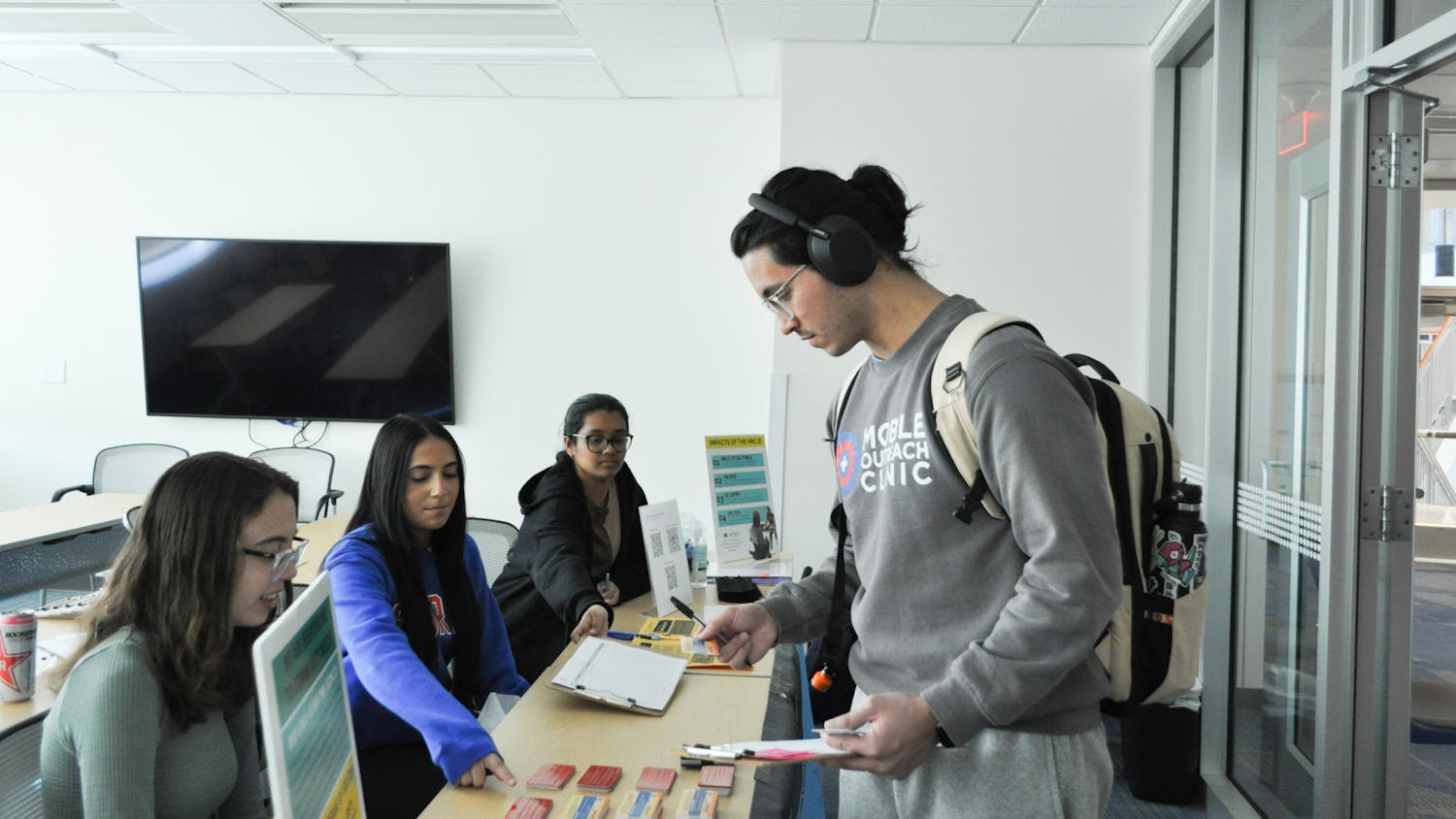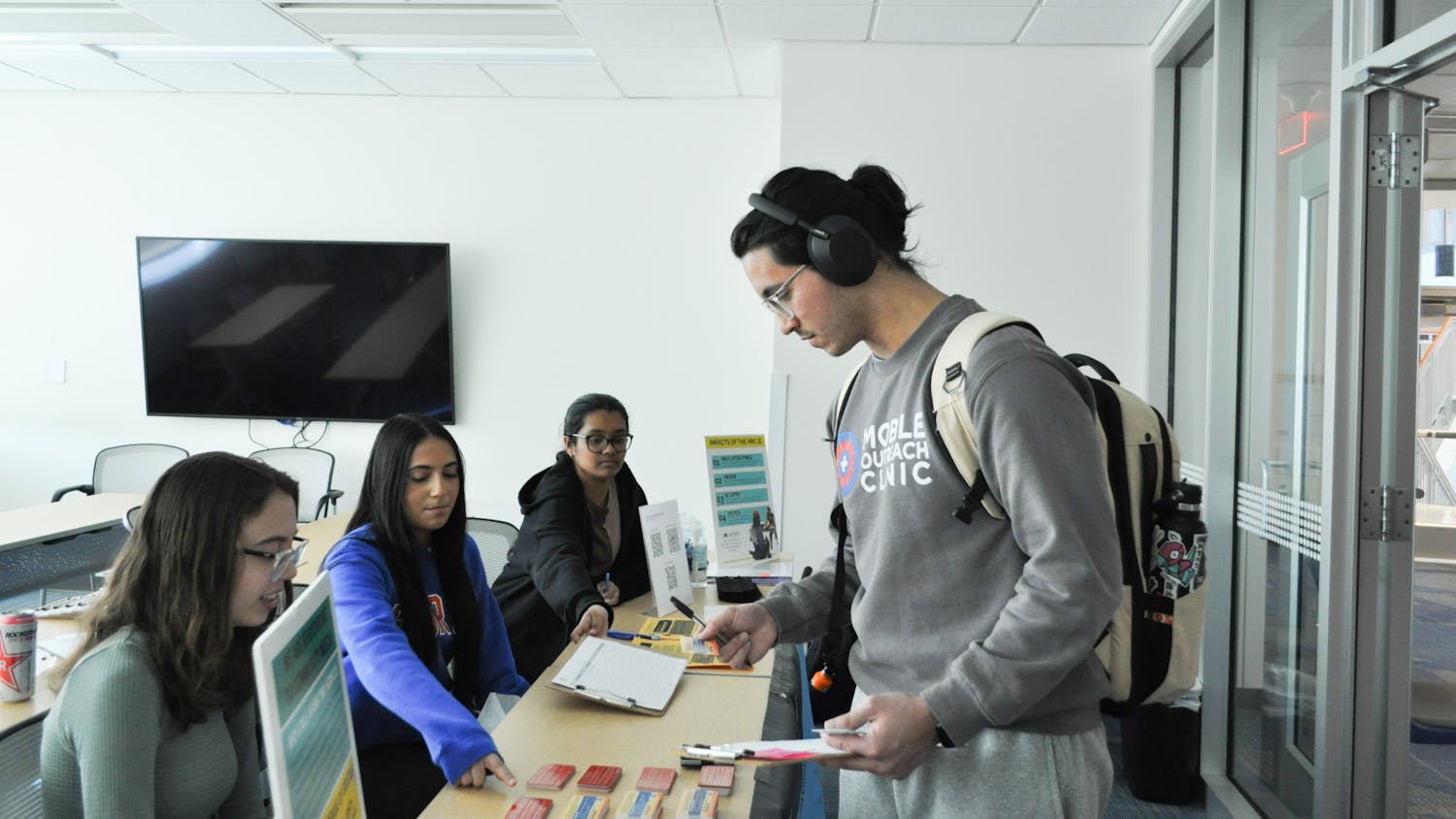About 300 UF students, Immokalee workers and Gainesville residents marched from Norman Field to Tigert Hall Thursday in an effort to remove Wendy’s restaurant from the Reitz Union.
They bobbed their signs, some reading “Boycott Wendy’s” and “Wendy’s Modern Slavery,” up and down as they chanted “Hey, Hey. Ho, Ho. Wendy’s has got to go.”
The Coalition of Immokalee Workers partnered with UF students to protest Wendy’s because the international company has not signed into the coalition’s Fair Food Program, which assures more than 35,000 migrant farm workers protection from exploitation and abuse.
The coalition is from Immokalee, Florida, near Naples, and represents tomato farmers who supply Wendy’s restaurants across the nation, said coalition volunteer Billy Hackett, a 21-year-old UF political science and international studies junior.
On March 8, the Gainesville City Commission passed a resolution that supported the movement’s call to have UF cut ties with Wendy’s.
Here are three things to know about the movement and Wendy’s on campus:
1. University administration said it is not encouraging the negative treatment of workers because a different company provides its produce.
The produce for the Wendy’s on campus is supplied by Aramark, which provides food for Gator Dining, said Margot Winick, a UF spokesperson. The company uses a different supply chain for its tomatoes that is not connected to what franchised Wendy’s restaurants use.
Aramark also signed the coalition’s Fair Food Agreement in 2010, Winick said.
However, Hackett said it’s important to acknowledge that UF misses the point.
“While the tomatoes on campus may be ‘fair,’ there are much bigger issues at scale,” Hackett said. “The Wendy’s corporation continues to profit off of the tie that it has with the university.”
2. The march is the final stop on a nationwide tour to bring awareness to issues of migrant workers.
Dubbed “The 4 for Fair Food Tour,” the march has been brought to universities like the University of North Carolina at Chapel Hill, Ohio State University and the University of Michigan, Hackett said. The final stop was Gainesville, just a four-hour drive from Immokalee where the movement began.
3. The Immokalee community first began the Fair Food Program in 2011.
Nelly Rodriguez, a Mexican-born migrant worker, has been working the Immokalee tomato fields for more than 15 years.
She was part of the group of farm workers who started the Fair Food Program in 2011, she said. Immokalee tomato fields had been known in the country as “ground zero,” she said.
Rodriguez said several human rights violations take place every day and workers are deprived of water, shade and breaks. She also said 4 in 5 farmworker women are sexually assaulted.
Students, organizers and Immokalee workers marched through campus from Norman Field to Tigert Hall Thursday to urge UF to remove the Wendy’s from campus.






